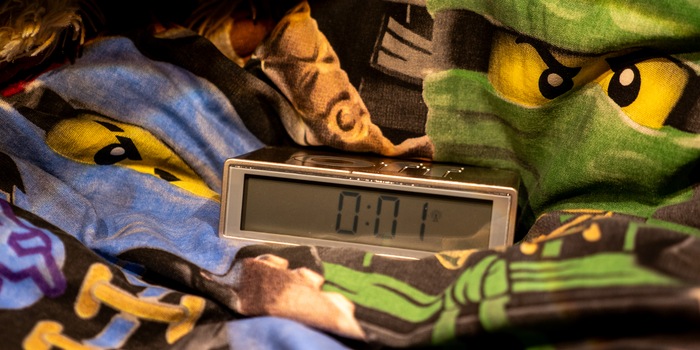

Kids, go to sleep! Why every minute counts
A recent study shows that parents should not give up the fight for the right bedtime too early: just a few minutes more sleep can make a big difference for children and adolescents.
«Go to sleep!» My children increasingly shrug off this request. The first reaction to my request is just a tired smile. After the third reminder, it's time to brush their teeth and the clock keeps ticking for quite a while until peace and quiet finally returns. When I've long since finished, the children often still have energy - which they might not have the next morning.
Long-term study on brain development
Researchers from Cambridge and Shanghai wanted to better understand the effects of less sleep on (pre-)pubertal children. The data they analysed comes from the USA, where over 3,200 adolescents are taking part in the ABCD study. ABCD stands for «Adolescent Brain Cognitive Development» - it is the largest long-term study on brain development and child health in the country.
The study involves MRI scans and cognitive tests such as reading, problem solving and concentration tasks. To measure the sleep of the 11- and 12-year-old test subjects, they were fitted with Fitbit wristbands.

The first realisation: it's not just us who sleep too little. Young Americans stay awake very late. On average, young people do not get the recommended eight to ten hours of sleep per night.
Little, less the least
In total, the researchers divided the test subjects into three groups. One group slept too little, the next even less and the third far too little. The result:
- 39 per cent get an average of 7 hours and 10 minutes a night. They go to bed late, wake up early and have a higher pulse rate at night.
- 24 per cent get an average of 7 hours and 21 minutes and have unremarkable sleep characteristics overall.
- The remaining 37 per cent sleep an average of 7 hours and 25 minutes, tend to go to bed earlier and have a lower heart rate at night.
What is immediately noticeable: The differences between the groups are small. On average, there are only 15 minutes between the long and short sleepers. That's just a small family argument about the right bedtime.
More brain volume, better tests
The group with the longest sleep was slightly ahead of the others in terms of development. The adolescents had the largest brain volume and performed best in the tests. The middle group followed, with the short sleepers achieving the weakest results.
These findings could also be transferred to other age groups. Whether in nine- or fourteen-year-olds - the corresponding characteristics were always found in the different sleep types. Despite surprisingly small differences in terms of sleep.
«We know surprisingly little about adolescent sleep, even though it is a crucial developmental phase», says Barbara Shahakian, one of the authors and Professor of Clinical Neuropsychology at the University of Cambridge. Even if the scientist's thirst for knowledge is far from quenched, the fact that the fight for every minute of sleep is worth it motivates me.
Waking the children ten minutes later in the morning, for example, is something I can easily manage. Then the only thing that would have to work is falling asleep earlier. A study alone cannot conclusively answer the question of whether there is a direct correlation between sleep, brain function and test results in adolescents. But according to lead author Dr Quing Ma from Fuhan University, there are various research findings that support this assumption.
Girls sleep a little longer
What there are also a number of suspects whose influence on adolescent sleep will be further investigated. For example, TV, video games and mobile phones. Keyword: screen time, especially in the evening. Smartphones or not, it is normal for teenage children to sleep less. The internal clock changes and doesn't tick the same for everyone.
A meta-analysis of data from 20 countries shows that the amount of sleep per night generally decreases by 14 minutes per year between the ages of 9 and 18. On average, girls spend eleven minutes longer in bed than boys. At the weekend, when they catch up on missed work, it is even 29 minutes.
Sleep and school
In an international comparison, European teenagers are absolute dreamers: they sleep up to an hour longer than American teenagers and up to two more than their Asian peers. Sleeping longer is certainly healthier. Every year, the Pisa study shows that this does not translate into better academic performance, with Japan and South Korea regularly coming out on top.
In this respect, the researchers from Cambridge and Shanghai were also unable to identify any significant differences between the groups based on the data from the ABCD study. Why this is the case despite the better cognitive performance of those who sleep in remains a mystery for the time being - and allows parents of short sleepers to breathe a sigh of relief, at least on this point. Perhaps their children simply study too long in the evening.
Simple writer and dad of two who likes to be on the move, wading through everyday family life. Juggling several balls, I'll occasionally drop one. It could be a ball, or a remark. Or both.
Interesting facts about products, behind-the-scenes looks at manufacturers and deep-dives on interesting people.
Show all




